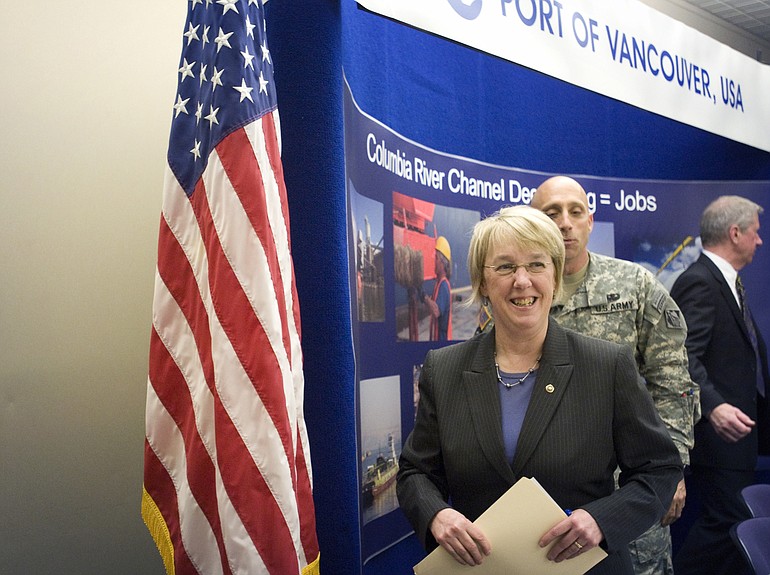Local elected officials must reach consensus soon, or a new Interstate 5 bridge across the Columbia River won’t happen for at least another six to eight years, U.S. Sen. Patty Murray said Friday during a visit to Vancouver.
“If we don’t have a plan that everybody’s behind, it’s going to be extremely hard to get federal funding,” she said.
Murray, who chairs the transportation appropriations committee, is in a key position to deliver federal funding for a project with an estimated price tag of $2.6 billion to $3.6 billion. The senator, who is seeking her fourth term this year, visited The Columbian’s editorial board on Friday afternoon.
The Columbia River Crossing was a major topic of discussion.
Deeper river channel reaping dividends
The project would replace two existing three-lane drawbridges over the Columbia, improve five miles of freeway, and extend Portland’s light rail system into downtown Vancouver. Planners anticipate needing at least $400 million in federal highway funding for the project, along with $750 million to build the light rail line. (Murray cleared the way for the feds to underwrite the full cost of the light rail line with a provision in a spending bill approved in December.)
Murray acknowledged that the project is costly and complicated, but said local leaders must make tough decisions.
She recalled an early lesson to illustrate the point: While she was president of the Shoreline school board in the 1980s, Murray said, the district had to shut down one of its three high schools. Murray put the matter to a vote rather than dragging the process out.
“Everybody thought that would be the end of my political career,” she said. “At some point, you’ve got to make a decision and move on.”
The time to decide is drawing near on the crossing project, she said.
Federal transportation authorities are planning to publish a formal Record of Decision on the new I-5 bridge by the end of this year, which happens to be the same time that Congress expects to reauthorize a six-year package of major transportation projects across the nation.
Murray said she’s wary of approving a new I-5 bridge one day, only to have local elected officials testify against it the next.
“Guess what’s going to happen to that project?” she said. “It’s not going to happen.”
However, it’s unclear how far local elected officials will push the matter.
Vancouver Mayor Tim Leavitt, for example, made his opposition to tolls a centerpiece of his campaign for mayor last fall. However, the state Legislature — not the city — authorizes tolls in Washington. And Leavitt, who otherwise supports building a new bridge, has said he won’t be an obstructionist if tolls are inevitable.
Similarly, Portland Mayor Sam Adams may be unlikely to jet off to Washington, D.C., to lobby against the new crossing.
Adams has been catching an earful from constituents opposed to the project, and he has backpedaled on his previous support. Adams has in recent months blasted the project for its cost, its impact on Portland neighborhoods and the potential for a large bridge to shift congestion from the river into the center of Portland.
Portland’s city council has already endorsed the bridge.
In fact, the broad outline of the crossing project — a replacement bridge with light rail — received the conditional support of city councils, transit agencies and metropolitan planning organizations on both sides of the river in June and July 2008. Washington Gov. Chris Gregoire and Oregon Gov. Ted Kulongoski subsequently appointed a 10-member Project Sponsors Council to advise state transportation officials and transit agencies on the project’s design and financing.
When that process bogged down, the governors this week ordered their state transportation agencies to push the project forward without delay.
“The Oregon and Washington federal delegations are positioned in key leadership roles to leverage substantial federal resources for this project as Congress begins to debate key appropriations and reauthorization bills,” the governors wrote. “The citizens of this region have watched our two states discuss and plan for a new bridge for over 20 years and they expect us to proceed.”
Erik Robinson: 360-735-4551 or erik.robinson@columbian.com.



